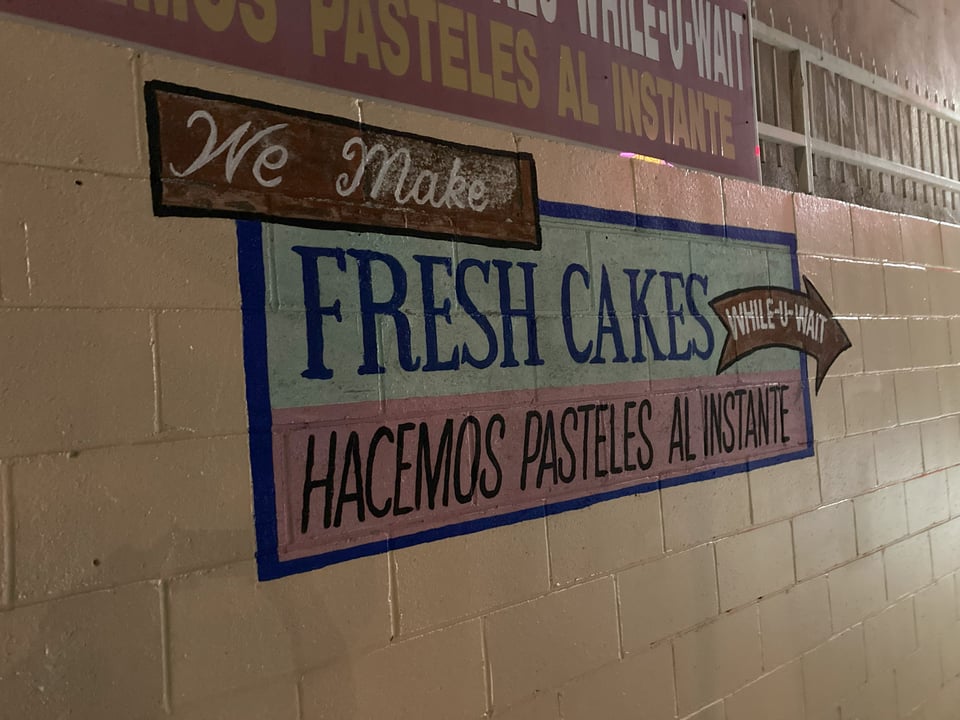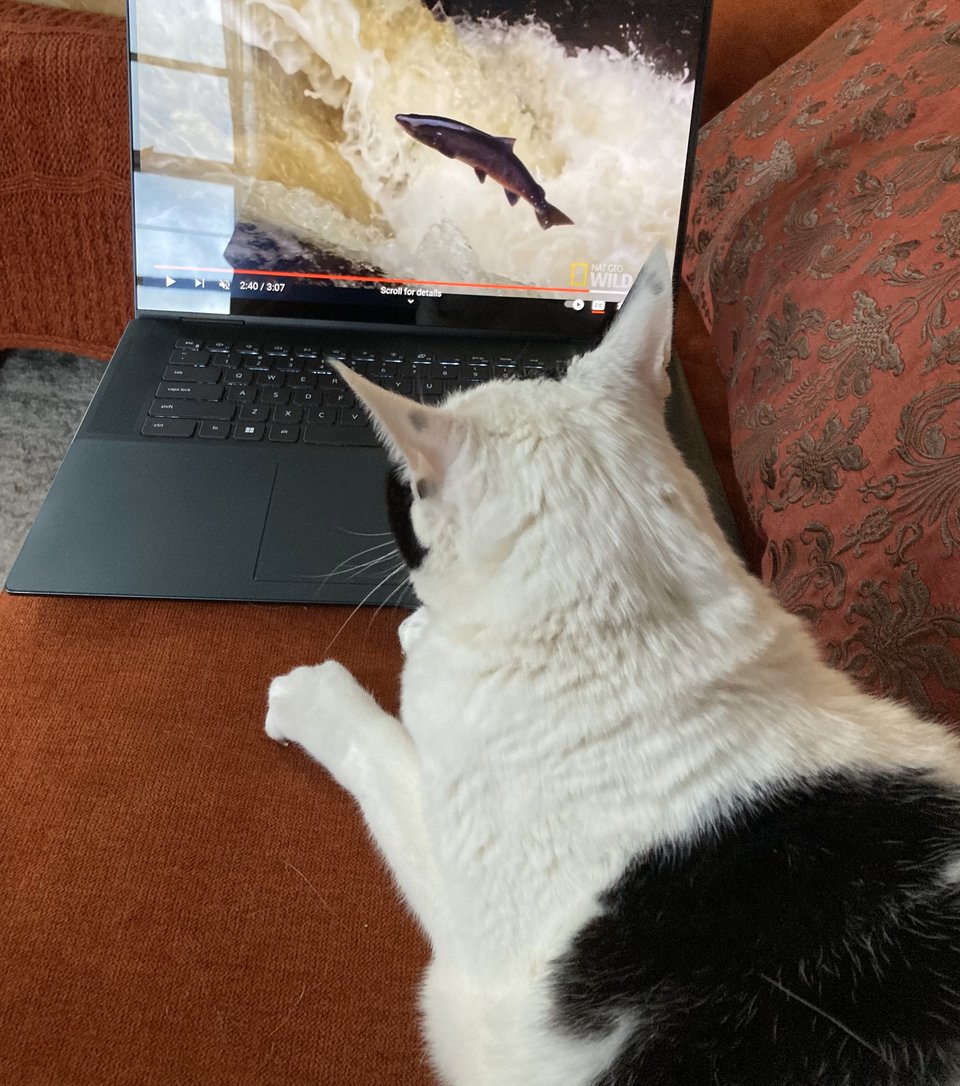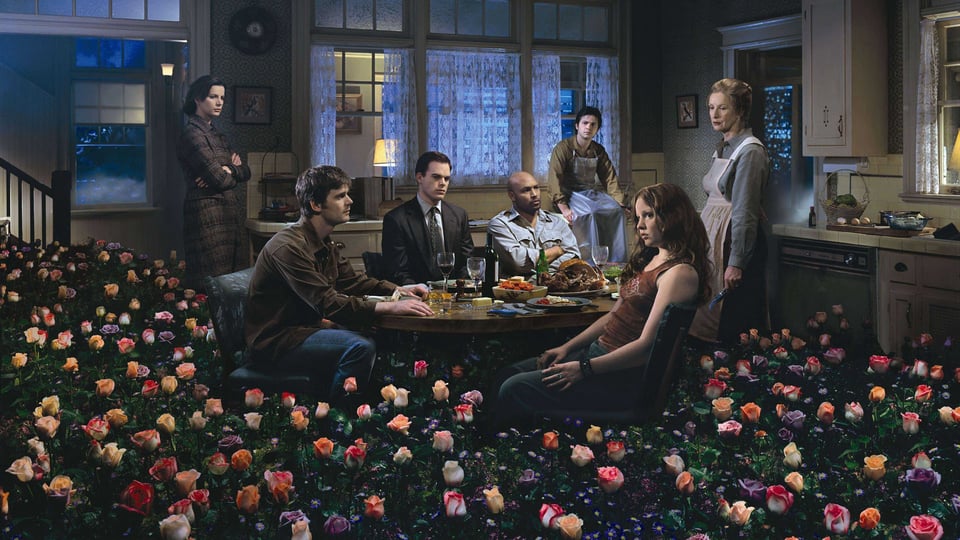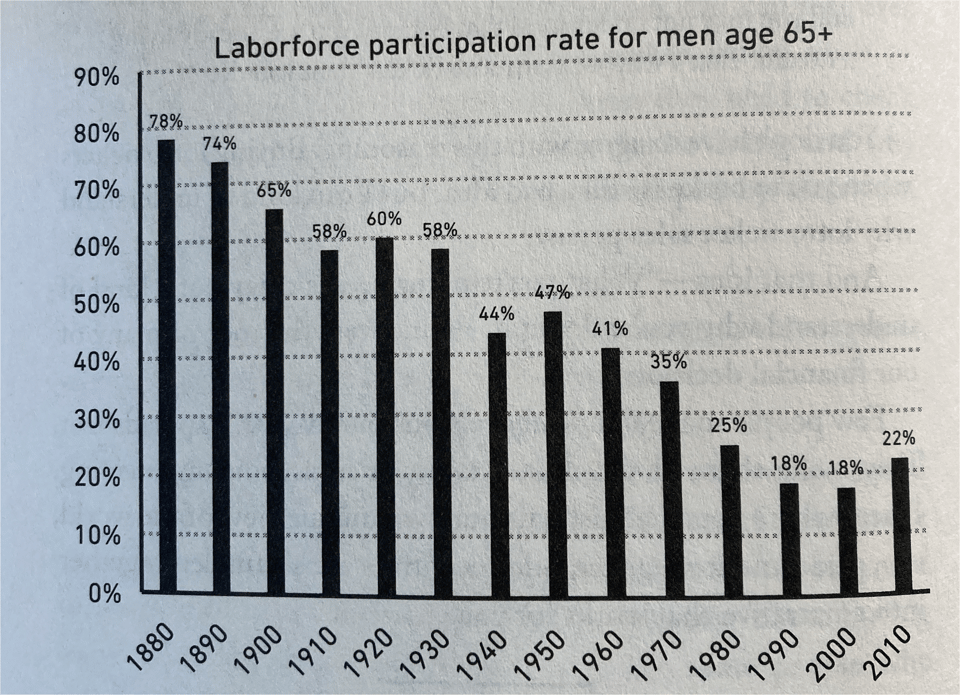Winter 2024 Tiny Letter
Dear Friends,
Happy New Year from Los Angeles, where I am currently wrapping up cat sitting duties.

In adjacent Santa Monica, I waited my turn in a line of ring enthusiasts. There aren't many places in the world with this kind of multi-ring setup. You can also find various gymnastics equipment and some more traditional swings for kids. The unusual muscle load of this kind of Tarzan swinging had me weirdly sore for days at the back of my ribs.

I stayed in Echo Park, a neighborhood known for...uh...having a park called Echo Park(?)

Each day, I provided photographic proof to Bella's owners that she was doing fine. I tried to come up with a fresh image every day.
I also learned that at Vons grocery store, switching the self checkout machine to Spanish means the volume will go way up. "FAVOR DE ESCOGER EL TIPO DE PAGO!!!!!" It's a little like Americans in France, simply speaking much louder, still in English, thinking that will make them more likely to be understood. "We're looking for the SHAMPS DUH LEEZAY! Do you know where the SHAMPS DUH LEEZAY IS?!?" @Jena, I got you.
The eternal struggle between meaning and stability

Props to Samantha for recommending this book. Author Satya Doyle Byock proposes that between late teens and mid 30s, one often faces a crisis between the need for meaning and the desire for stability. To me, this reflects the artist's dilemma. That is, the simple fact that artistic endeavors, and for that matter, the helping professions, often don't pay very well. Or TL;DR do you want to make money, or be fulfilled? Byock often counsels people who gravitate towards one extreme or another. The artistic types often feel challenged by "adulting", and may have trouble keeping their finances together, or keeping healthy routines. By contrast, stability types may be very successful from a career perspective, but aren't getting much meaning out of their work. Though I am outside the book's demographic focus, it still resonated with me. I give at an A+ and my highest recommendation.
This also had me thinking about a more fundamental problem of the United States--simply put, there is too much reward and encouragement for maximizing profit, and not enough for helping society. We should encourage more Katalin Karikos and fewer Jeff Bezos.
My summer as a MILF

Alison Crosthwait is a former psychotherapist and current transformation coach. She does a lot of work with psychedelic integration. Crosthwait recently wrote an essay, available to read and in audio form, called My summer as a MILF.
Humans are creatures of comparison. It's how we make sense of many things, a useful skill. But our need to constantly compare can rush us to judgment and assumptions about what a thing is, its meaning, and its context.
Just based on the title, one could assume all sorts of things, and some of them might be correct, and others wrong. I found this essay to be revelatory, thoughtful, balanced, and profoundly honest.
A Cancer Patient’s Last Wish: To Pay Off the Medical Debt of Others
Casey McIntyre organized a campaign that has raised nearly $220,000 since she died a week ago. The funds are expected to pay off more than $20 million in debt, an official said.
Reducing your purchases at Amazon
I have rambled about Amazon before, and I still use them reluctantly--mostly, when other options are unavailable, overpriced, or hard to find. I still feel like many companies don’t get it, that price is not the sole motivator for Amazon shoppers--the platform's ease of use is key.
Anyway, when I want to purchase an inexpensive item, for example, deadlift straps, I will head to eBay instead. While I’m sure eBay probably isn’t great on corporate responsibility either, I feel like the platform is perhaps a little bit less corrupted. Also, on many items, prices are better. Shipping takes a bit longer, but if I need something in a hurry, I just go to the store.

Another trick is to read reviews of items in a particular category, and then find an older model that has been discontinued. I did this for a SAD light, which seems like a smart purchase given the Oregon winter blues.
Going back to the Golden Age of Television
The first time I saw an episode of Six Feet Under, I was stunned by how adult the show felt. People communicated like adults, exploring difficult topics, difficult conversations. The show first aired in the early 2000s.
The show centers around the Fishers and the funeral home they manage. There is a lot of smart and anguished reflection on the meaning of life and death, big life choices, risk and reward, and karma.
I watched the entire series some time ago, and this winter decided to re-watch it. In order to maintain my Spanish comprehension, I watch with Spanish language dubbing. Six Feet Under is one of the best shows for this purpose, because it mostly people talking one-on-one or in small groups, and the context is very clear. (For the record, science fiction like The Expanse might be the worst, because of all the technical language and unusual references or invented words and cultures.)

The show really holds up. The characters can be a little overly dramatic at times, but there's almost nothing about the writing or the acting that feels stale or outdated. Also, much to my enjoyment, the characters are not in love with their phones. I think the quality is so high that it will still feel solid in another 20 or 30 years.
Streaming on Max (formerly HBO) and perhaps elsewhere.
I'm now rewatching Big Love, also from the Golden Age of Television, also in Spanish.

The Psychology of Money
A quote on the cover says, "One of the best and most original finance books in years." That may well be accurate. Author Morgan Housel is a financial analyst of sorts, but his book has a very unconventional approach to the topic of money. He points out a lot of things which, on reflection seem obvious, but are rarely discussed.

The concept of retirement is new. 100-odd years ago, a large percentage of men just kept on working. According to the author, "it wasn't until the 1980s that the idea that everyone deserves, and should have, a dignified retirement took hold."
Social Security and IRAs (Individual Retirement Accounts) are very recent inventions. The Roth IRA wasn't born until 1998.
A lot of his points revolve around the relative newness of our financial systems: "We all do crazy stuff with money, because we're all relatively new to this game and what looks crazy to you might make sense to me." Housel is also on a recent Tim Ferriss podcast.
Read "The Psychology of Money"
Closing quote
One of my 'facts of life', which becomes clearer as I get older, is that adults are just teenagers in old people costumes. So-called adults frequently make the same immature, stupid, selfish, silly, lazy actions you'd expect from a 13 year old. Some people have better costumes which hide the teenager, others don't bother to hide it.
-- AzraelBrown, on Metafilter